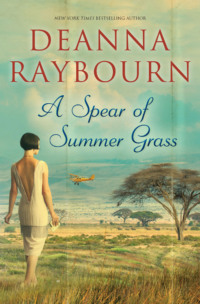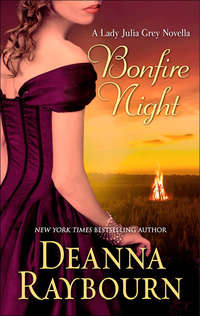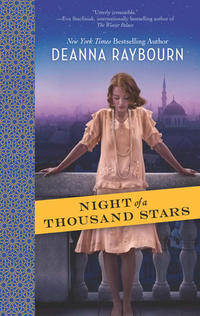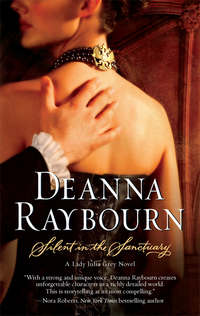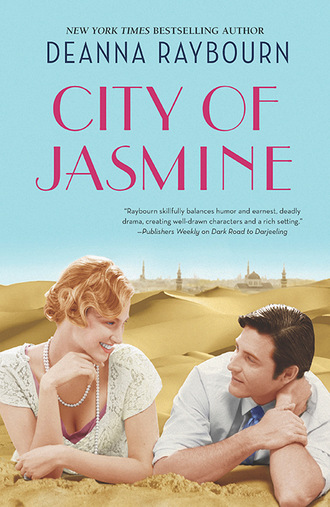
Полная версия
City of Jasmine
“I do. More than I ought,” he said, a certain bleakness coming into his eyes.
“Oh, dear,” I said. I smiled, but didn’t dare laugh. “Is it as bad as all that?”
“It is,” he returned, matching my light tone. “Appearances to the contrary, I’m rather desperately poor. Haven’t a bean of my own to offer a woman.”
“If it’s any consolation, you make a good showing for a fellow who’s up against it.”
He shrugged. “Splendid genes and nothing to show for them. My grandfather is the Duke of Winchester.”
I gave him my best po-faced expression, and he burst out laughing. “Bless you for that. I should have known tossing out his title wouldn’t impress you. I’ve seen the cuttings from places like Monte Carlo and Biarritz. I know you’ve met your share of Russian grand dukes and American millionaires. A plain English duke must seem like rather small change in comparison.”
“The Russian grand dukes are all poor as church mice and just looking to get their names into the newspapers so they can make a few quid themselves. And the Americans are after publicity for whatever they’re selling—rubber tyres or bath soap or cough medicine. They’ll be gone as soon as my headlines are. At least being the Duke of Winchester is something to hang your hat on. It still means something in England.”
“Not for me,” he said. His expression didn’t turn pitying and I liked him better for it. “My cousin will inherit. I’m the second son of the third son. No title of my own, and twelve relations between me and the strawberry-leaf coronet. I’m left to make my way in the world with a good name and a few decent suits.”
“And some good connections,” I pointed out. “Surely your grandfather knows people in the diplomatic corps who might help you along.”
He smiled. “You don’t know Grandfather. He has been locked in his study writing a treatise on the subject of Tudor tax laws since 1893. Oh, he creeps out for Christmas, but the rest of the time he’s content to stay in his study. I think the housemaid occasionally dusts him and turns him to face the sunlight like an aspidistra.”
I laughed and he carried on, still lightly, although I suspected it was an effort.
“So, that’s me. Educated and tailored beyond my means, but with great hopes. What of you, Evie? See, there, I managed it. Next time I promise it will sound almost natural.”
“I’m like you, making my own way as best I can.”
“But there is a double-barrelled surname in your family tree, as well,” he prompted.
“Ah, the Finch-Pomeroys. My grandfather wasn’t as grand as yours—only an earl and on my mother’s side, so it doesn’t much count. When Grandfather died the whole caboodle went to a cousin who kicked it in ’07 and then onto his nephew. Everything has passed so far away that the current earl is a perfect stranger. I’ve never even seen the estate myself, although Aunt Dove grew up there with my mother.”
“And where is your mother now?”
“Dead,” I replied succinctly. “She married badly.”
“A footman?” he asked with a bit of a twinkle in his eye.
“Worse. A writer, and a dead broke one at that. But they were very much in love. There was a good deal of laughter in that house, although neither of them had the sense God gave a goose. If Papa sold a story, he’d spend every penny in a day. I remember when he sold a book of poetry and he went straight from the bank to the furrier. He bought Mama a silver fox stole she had to pawn a week later to pay the butcher’s bill. It was always furs for Mama or pearls. And for me, it was books, beautiful books with silk ribbons to hold my place. It was always Christmas when Papa sold something—the trouble was he didn’t sell much.”
“He sounds a remarkable man,” Halliday said softly.
“He was. As good as they come and guileless as a lamb. He always thought the next great adventure was just around the corner. When I was eight, he sold his first novel. He was so happy, he glowed with it. There were new frocks for me and for Mama, and that night he took us to the theatre. Peter Pan had just opened, and he was determined to get the very best seats. He took us to Simpson’s first for roast beef and I ate more than I have ever eaten in my life. And when the play was over he took us for ice creams and told us he had bought a share in a business in New Orleans. He was leaving the following week for America to investigate his new investment.” I paused. I didn’t tell the story often, and the words were rusty and stuck in my throat. “Mama insisted upon going. I think he knew she would. He was desperately pleased she didn’t want to be parted from him. So they dropped me in the midst of a pack of aunts and sailed for America.”
Something in my tone must have warned him. His eyes were soft and his voice was gentle. “What was it?”
“Yellow fever. Turns out there was a beastly epidemic raging. They died within a week of one another. That’s the only mercy in the whole story.”
“Good God,” he said faintly.
I shrugged and affected a casual air I did not feel. “It all happened so long ago, it’s almost like talking about strangers.”
“Still, I imagine that sort of thing leaves a mark,” he said quietly.
“It does, rather. I try to be responsible. I try to take care of the things that matter like keeping food on the table and shoes on our feet. But sometimes...well, sometimes I do very thoughtless things. Like running away with Gabriel Starke the night I met him.”
His expression was delightfully scandalised. “You didn’t!”
“I did. We eloped to Scotland after we met at a New Year’s Eve party. A mutual friend invited us both because she intended to match us up with other people. But we danced together and that was it. A coup de foudre. We both felt it—at least I thought we did. In any event, he had a fast car and somehow I found myself on the road to Scotland, ready to marry a man I hadn’t even known six hours before.”
To his credit, Halliday looked more amused than shocked. “It sounds terribly romantic.”
“That’s very kind of you. I think it sounds mad.”
Something shrewd stirred in his eyes. “The song you danced to the night you met Gabriel Starke. Wasn’t ‘Salut d’Amour’ by any chance?”
He gave me a kindly smile and I returned it. “Got it in one.”
“Ah. Pity, that. And here I thought I was sweeping you off your feet,” he told me with a rueful lift of his silky brows.
I laughed. “Don’t give up so easily. Just because I’ve learned to keep my feet on the ground doesn’t mean I can’t be wooed.”
“But you don’t really keep your feet on the ground, do you?” he countered smoothly. “You’re always dashing off in that aeroplane of yours. I must say, I’ve done a bit of flying myself, and it’s a devilish thing for a lady to try. You astonish me, Evie.”
“But there’s nothing astonishing about it,” I protested. “It was the most logical thing in the world. I worked at a convalescent hospital during the war. I brought them tea and read their letters from home and played cards with them. They were pilots, most of them American and terribly young and so sweet it broke your heart just to see them all swathed in bandages and aching for a chance to get back into the action before it all went away. I adored them, but I could only read so many letters and play so many games of cards before I wanted to scream. So I made them teach me about flying instead. It gave them no end of a thrill to talk about it, you know, and they were terrifically good teachers.”
Halliday smiled. “You liked them.”
“Immensely. They were just boys, really. Like brothers to me.”
He shook his head. “Surely not all of them. I imagine more than a few found themselves smitten with you.”
I shrugged.
“You surprise me. I would have thought the dash and romance of a pilot would have turned any girl’s head.”
I grinned. “Well, there was the odd kiss or two, but nothing more. There was only one I almost lost my head over, but it would never have worked.”
He leaned forward, resting his elbows on the table. “Aha! Intrigue at last. Was he a pilot?”
“Yes. He was the one who took me up the first time.”
“One of those daring Yanks, no doubt,” he said, pulling a face. I laughed.
“Almost. He was Canadian by birth but brought up in Africa.”
“Good God. Colonials,” he said with a shudder.
“And Ryder was more rustic than most,” I told him. “He helped form the flying corps in British East Africa. He was shadowing the highest ranking ace in our flying corps when the fellow was shot down. Ryder came with him to Mistledown while he recuperated, but he was bored out of his mind. He amused himself by borrowing a pal’s Sopwith and getting me in the air.”
“A direct and dashing way to a lady’s heart.”
“True. I might have been smitten by any man who taught me to fly. But Ryder was something special.”
Halliday’s voice was soft. “You were in love with him.”
“No. Not even halfway. But I was grateful to him. He was the one who got me airborne, convinced me I could do it. He flew like a buccaneer and he taught me everything he could before he was sent back to Africa.”
“Did you keep in touch with him?” Something like jealousy tinged Halliday’s voice, and I enjoyed that.
“The occasional postcard. It’s all very polite and respectable,” I said with a prim mouth.
Halliday leaned closer still. “It’s no business of mine, but I wonder if I should believe that.”
“It’s the truth,” I assured him. “Ryder never laid a finger on me. Of course,” I said, slanting him a wicked smile, “I put considerably more than a finger on him, but that’s a different matter.”
Halliday’s eyes widened and his mouth dropped open, but his expression was not entirely disapproving. “You seduced him?”
“I tried, but bless him, he wasn’t having any of it. He understood why I did it and he turned me down so sweetly I couldn’t even be angry with him.”
“Oh, dear.”
“I wanted him for all the wrong reasons.” I shrugged. “He reminded me of Gabriel. I don’t know why—entirely different men. But there was something fine about Ryder, something deeply good, and that was what I thought I had seen in Gabriel once. It brought up feelings I thought I had buried.”
“No man wants to be a woman’s second choice,” he said, his voice low. His gaze was intent, his eyes searching, and after a moment, perhaps not seeing what he wanted in my face, he sat back and adopted a lighter tone.
“And how did you go from student pilot to world-famous aviatrix?”
“I started barnstorming. I thought I could make a living at it, but Aunt Dove’s money dried up and suddenly I had her to take care of. And so many girls had taken up barnstorming it wasn’t enough just to be a woman pilot anymore. I had to do something to set myself apart. It got so competitive the manager of one aerial circus wouldn’t even give me a try-out, so I stole an aeroplane and pulled a barrel roll over his head. He screeched like a monkey, he was so furious. He threw me off his airfield and swore he would make certain I never got another job flying anywhere. He was as good as his word. Every other outfit refused to see me after he told them what I’d done. It wasn’t long before I didn’t even have enough money for a cup of coffee at a corner house. I was feeling desperate, horribly so, and suddenly the walls of our little rented room just seemed to close in on me and I had to get out. I went to the park—Kensington Gardens. I wandered for hours, not even paying attention to where I was, until finally my legs gave out and I just sat. And do you know where I was?”
His expression was rapt. “Where?”
“At the foot of Peter Pan himself. I was sitting at the base of the statue. And I looked up at him and thought of that last night with my parents at the theatre and I thought of Gabriel always dashing around after adventure and never really growing up and I began to weep. Not a pretty, dainty little cry but an absolute storm of sobs. It was appalling—I make the most awful noises when I cry, and my eyes go very small and my nose runs like a tap. But I couldn’t seem to stop. I just sat there, bawling my eyes out until I couldn’t cry anymore. It was a relief actually. I had never cried properly over Gabriel. But I cried that day, and when I was done, I looked up at the statue again, and everything suddenly made sense.”
He cocked his head. “How so?”
“The last gift Gabriel ever gave me was a copy of Peter and Wendy. The frontispiece has an illustration of all the most important characters—Peter, the Darlings, Tiger Lily—and looming from the left is Captain Hook. Well, an aeroplane is rather like a sailing ship, isn’t it? I decided if Hook could have a Jolly Roger, so could I. I could remake myself as a sort of modern-day pirate and adventurer. I looked up Wally, a friend from the war who happened to be an ace mechanic. He gave me the money to buy the Strutter and we christened her. I painted a skull and crossbones on her tail and let it be known I would fly anything for a price. I hauled important papers and the occasional passenger, although it’s entirely illegal. I even ferried a pig once. And I flew a case of champagne from Paris to London for a French breeder to celebrate winning Ascot. My name was in the newspapers enough that I began to attract sponsors. When I had enough, I arranged the Seven Seas Tour.”
“Crossing the seven seas of antiquity in a modern ship,” he said admiringly.
“Just so. Like a pirate of old.”
“Only rather prettier,” he said, his cheeks blooming pink.
I went on as if he had not spoken. “And I invited Aunt Dove to come along to sweeten the deal for the sponsors. She is meat for the newspapers. They can’t seem to get enough of her—no doubt because they never know what she’s going to say.”
He gave a short cough and patted his mouth. “She is an original,” he said gallantly.
“And so we started off, and here we are. Heading for the Caspian next and lands as yet unseen.”
“Here you are,” he said softly. His eyes were warm, and for an instant, his hand hovered over mine. But he dropped it to the table and when he spoke, his tone was bright but forced.
“Have you finished your coffee? Then let’s be off. There’s something I want to show you.” He fished coins out of his pocket while I tactfully turned away. Through the window I caught a flash of striped robe, but as soon as I blinked it had gone. It meant nothing, of course. There were thousands of such robes in Damascus, and doubtless hundreds on that street alone. Still, when we emerged from the coffee house, I looked about for a glimpse of a familiar profile or that slender, darting figure.
“Everything all right?” Halliday asked.
I slipped my arm into his and gave him a smile. “Perfectly.”
He led the way, winding through a few small backstreets until we came to the Gate of the Sun, the Bab Sharqi, the most ancient way into the city, and from there down into the street called Straight. As we walked he told me the history of the road, how it had been built by the Greeks and improved by the Romans with arches and colonnades.
“On this road, you will find synagogue, church and mosque, sitting cheek by jowl and getting along rather nicely together,” he explained.
“It’s good to think such things are possible somewhere in the world.”
He paused, propping his hand against a bit of Roman stonework. “This has been here since the time of St. Paul, when he stayed at a house in this very street. The man is long gone, and yet this bit of stone endures. Astonishing, isn’t it? How many temples and tombs outlast us all? They were put there by the hands of men, at the orders of kings and priests, and yet they stand on long after the men of power have dried to dust.”
“‘All human things are subject to decay, and when fate summons, monarchs must obey,’” I murmured, hearing Gabriel’s voice ringing on the words as he had once spoke them.
“What’s that?” he asked.
I shuddered as if a goose walked over my grave. “Just a bit of poetry.”
“It sounds familiar. What’s it from?”
I shook myself free of the past and smiled up at him. “I can’t remember.”
He returned the smile and extended his arm. I slipped mine through his and we walked on in the warm sunshine, the smell of jasmine faint on the air as somewhere behind us trailed a ghost who whispered poetry in my ear and teased a breeze to touch my cheek.
* * *
That evening we dined with Miss Green, and our companions met us in the hotel court. Aunt Dove was wearing another of her turbans, this one an Indonesian batik pinned with a great lump of turquoise while her favourite green brooch winked from her considerable décolletage. She looked like a particularly winsome peacock, and Miss Green, subdued in a stern and rusty black gown, complimented her. Halliday looked every inch the proper English gentleman in his beautifully tailored evening clothes while I had shimmied into a darling little black dress dripping with silver bugle beads. Halliday’s brows raised and stayed there when he saw me.
“I say,” he breathed as he took my hand.
I dimpled at him. “I shall take that as approval.”
“Rather,” he agreed. He turned to Aunt Dove. “Lady Lavinia, resplendent as usual.”
She gave him a fond look and fluttered her lashes a little while Miss Green organised us. She insisted upon taking us to a proper Levantine restaurant not far from the main bazaar. “Authentic fare,” she promised as our taxi alighted outside a nondescript stone building. “The real Damascus.”
Mr. Halliday manfully hid his reluctance, and we made our way to a thoroughly nondescript-looking place with no sign and a beggar reading in the doorway. He held out a cup towards us, never taking his eyes off of what looked like a copy of Les Misérables.
“Pay no attention to Selim,” Miss Green instructed. “Just step over his stump. That’s right.” She ushered us through the stout wooden door and into a courtyard with a fountain. Across the courtyard, a pair of elaborately carved wooden doors had been thrown open and delectable smells were wafting from inside.
Miss Green grinned. “Trust me, Mrs. Starke.”
She led us into one of the most beautiful rooms I had ever seen. The walls and floor were tiled in extravagant patterns and the ceiling soared overhead to a graceful gilded dome. Another fountain stood in the center, this one festooned with lush water lilies and the darting flash of goldfish. Lanterns with coloured glass panes hung about the room, interspersed with golden cages full of songbirds. The brass tables were low and surrounded by piles of silken cushions. The proprietor, a plump, jolly sort of fellow, greeted the archaeologist with great affection and bowed repeatedly as he showed us to a table directly underneath the golden dome. We seated ourselves as best we could—Miss Green with a surprising sinuous grace and Aunt Dove with a decided plop. Halliday waited until I was settled with my feet tucked aside before taking the cushion next to me, arranging himself into a languorous posture.
“When in Rome,” he murmured.
Just then, a rather shabby character appeared, an Englishman, and from twenty paces I could tell he was another archaeologist from the telltale stoop. His hair was dirty with streaks of dull grey and his teeth, protruding unpleasantly from an unkempt beard, were of the prominent and horsey sort. His eyes—which might have been a pleasant dark brown once—were rheumy, and his features were set in a scowl.
“All right, Green. I’m here to make nice. Introduce me before I change my mind.”
Miss Green jumped up with alacrity. “Rowan, I’m so glad you could join us. Lady Lavinia Finch-Pomeroy, Mrs. Starke, Mr. Halliday, may I present the co-leader of our expedition, Mr. Oliver Rowan. Rowan, you might have met Mr. Halliday before. He’s attached to the British diplomatic delegation. This is Lady Lavinia Finch-Pomeroy and her niece, Evangeline Starke, the aviatrix.”
Mr. Rowan seated himself next to Miss Green. She graciously served as hostess, ordering local specialties for us and instructing us how to eat politely—with the right hand only. Almost as soon as we sat, waiters began to appear. The first came carrying brass bowls of hot, perfumed water with petals floating lazily on the surface. We dipped our fingers and dried them on soft linen then turned our attention to the food. Platter after platter was set before us, rich dishes of stewed meats and vegetables and tiny, delectable meatballs, and heaps of couscous jewelled with pomegranate seeds. There were smaller dishes of spicy sauces and savoury pastries as well as nuts and olives and dried fruits, all of it accompanied by discreet but potent glasses of arak, the anise-flavoured liqueur of the region.
When we had eaten our fill of the savoury courses, the desserts came—more pastries but these filled with nuts and citrus custards and drizzled with honey. There was a sorbet of pistachios and another of rosewater, and we ate ourselves into a stupor. The conversation, which had ranged from books to travel, turned more serious when Miss Green addressed Mr. Halliday.
“I think you might be a useful fellow to know. Those Frenchies think because they’ve sponsored part of the expedition they can send their government advisors out from Damascus to harass us on a routine basis. Could do with a bit of British support in getting them to let us be,” she told him firmly.
“Hear! Hear!” Mr. Rowan grunted through a mouthful of couscous. A few bits of it were stuck in his beard and I turned away with a grimace.
Halliday put up his hands. “Dear lady, I am the most minor sort of functionary, I assure you. My days consist of reading and composing the lowliest of memoranda, which I am given to understand are sent to very unimportant people and where they are quickly filed away never again to see the light of day. My influence would be less than nil.”
Mr. Rowan made a noise that sounded like “hmph.” Aunt Dove leaned over to put a hand on Mr. Halliday’s sleeve.
“Now I don’t believe that for a minute,” she drawled flirtatiously. He ducked his head with a worried expression and I smiled behind my glass. I had warned him she would try. Her seduction techniques varied from the painfully direct to the engagingly subtle, but her single most effective strategy was persistence. In this case, it afforded me a chance to hint to Miss Green that an invitation to her dig would be most welcome. I turned to address her, but she was busy giving instructions to the waiter. I held my tongue, watching Mr. Rowan. He was contentedly munching his way through a pile of flatbreads, washing them down with quantities of arak.
The waiter bowed and left and Miss Green turned to me, her cheeks flushed and her hair standing on end. “I say, this is a jolly meal,” she said happily. I wondered if she had sampled too much of the arak; if so, I had chosen my moment well.
“What do you think of Damascus, Mrs. Starke?” Mr. Rowan asked suddenly.
“It’s enchanting,” I told him honestly. “My husband and I meant to come together, but we never had the chance.”
Miss Green looked a little uncomfortable at the mention of my late husband, and Mr. Rowan seemed supremely bored as he picked at his teeth. I tried a different tack.
“How is the excavation going? A caravansary, I believe you said?”
At this Miss Green warmed immediately, going into painfully detailed descriptions of the site. But I had not been an archaeologist’s wife for nothing. I was able to ask intelligent questions, and when I queried her on the significance of the proximity of the site to an old Crusader castle, she fairly glowed.
“But civilians never understand that sort of thing! Yes, indeed, it is significant.” After spending another quarter of an hour describing exactly why it was significant, she trailed off. “I say, it is nice to have someone really appreciate what we are doing out here.” Mr. Rowan gave a decided belch and covered his mouth with his napkin.
I smiled my most winsome smile at the pair of them, but neither of them seemed inclined to take the thing further. “I would think a dig site would be immensely interesting to visit.” There, if that didn’t coax an invitation, nothing would, I thought grimly.





